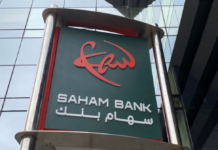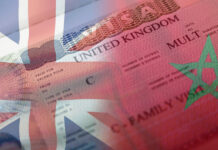As global fault lines continue to shift and new economic alliances emerge, Morocco is positioning itself as a key player in redefining the balance of power between Africa and the rest of the world. Guided by a long-term diplomatic vision under the leadership of King Mohammed VI, the country has become a strategic bridge linking Africa with the United States—the world’s largest economy.
Morocco’s commitment to building a lasting framework of triangular cooperation is no accident. It’s the product of a deliberate and far-sighted strategy grounded in continental solidarity, economic complementarity, and openness to international markets. This approach is supported by solid foundations: political stability, an investor-friendly regulatory environment, modern infrastructure, a skilled workforce, and proven expertise in forward-looking sectors.
A cornerstone of this positioning is Morocco’s unique status as the only African nation with a free trade agreement with the United States, signed in 2004. This exclusive partnership not only boosts Morocco’s role as a launchpad for American business into Africa but also enhances its appeal as a regional gateway. Over the years, both nations have deepened cooperation across vital sectors such as agribusiness, renewable energy, logistics, and information technology.
Now, the focus is on expanding that momentum. Morocco is working to tighten ties between African and American economies, acting as a facilitator and anchor for cross-continental collaboration. The goal is to establish a dynamic corridor of opportunity—one where American companies find reliable partners and African stakeholders gain greater access to international markets.
Flagship projects underscore this ambition. Chief among them is the Nigeria-Morocco gas pipeline, a sweeping infrastructure effort that will span several West African countries, reinforcing regional integration while securing energy supplies. Other strategic initiatives include the Atlantic Africa Initiative, which aims to turn the West African coastline into a transcontinental hub of cooperation, and the Triple A program, designed to help African agriculture adapt to climate change.
Each of these efforts reflects a broader vision of development—one in which Morocco doesn’t simply pursue its own growth, but positions itself as a catalyst for Africa as a whole. This commitment extends to climate diplomacy, vocational training, food security, and the energy transition, reinforcing the country’s role as a responsible and engaged regional leader.
Morocco’s stance is rooted in a clear-eyed understanding of the global landscape. In a world grappling with uncertainty, fractured trade flows, and an increasing push toward regional blocs, the country offers an alternative: a model grounded in multilateralism, fairness, and mutual benefit. It promotes flexible, tailored partnerships that respond to the specific needs of its allies, backed by tangible tools to help African economies build resilience.
Diplomatically, this translates into agile alliances, sector-specific agreements, and a proven ability to rally support around shared goals. On the ground, it means a growing footprint of Moroccan businesses across Africa, investments in infrastructure, telecom, healthcare, and education, and bilateral deals that encourage both trade and people-to-people exchange.
Underlying it all is a determination to reposition Africa within global value chains. Morocco champions a more equitable integration of the continent into international commerce—one that leverages Africa’s internal strengths and elevates its human and natural capital. It envisions a future-facing African economy: competitive, innovative, and attractive to global investors, while remaining deeply connected to the aspirations of its own people.
Through its consistent engagement, bold initiatives, and capacity to unite diverse actors, Morocco is helping shape a new African narrative. In doing so, it is also redefining what a partnership between Africa and the United States can look like: more balanced, more practical, and ultimately more transformative.





